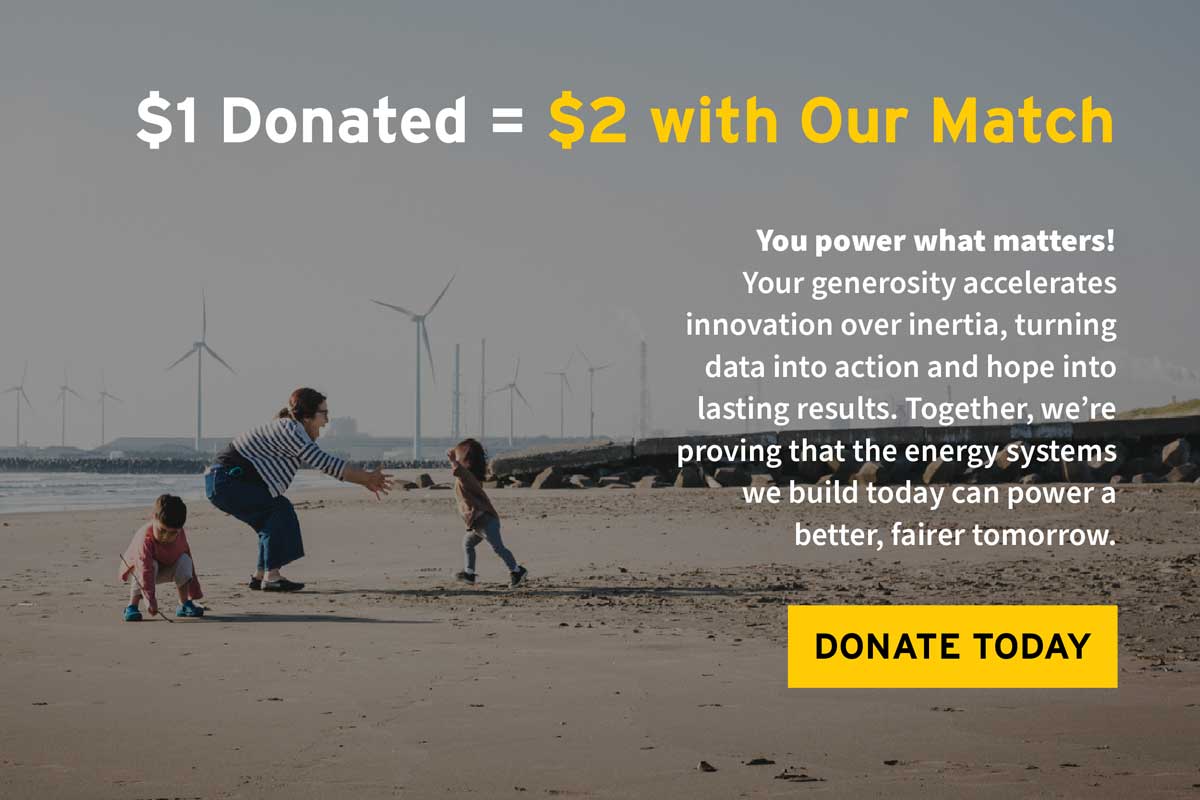
A Son, Bull Moose, and Belugas
One staffer on his personal motivations behind the work we do at RMI.
Will my son’s heart break as he witnesses the destruction of so many of nature’s wonders? If he’s much like me—and if we don’t quickly change course—I think he may feel the years become darker, not brighter.
In my life, I’ve been awestruck by nature many times. Some of the most profound memories from my youth include fishing the Ninilchik and Kenai Rivers in Alaska. Exploring the teeming Okinawan reefs with my family during dozens of dives. In high school, commercial fishing with my brother on the Beluga River, named for the whales that often swim upriver in search of salmon. As an adult, camping with my wife and friends in the sparse, desert landscapes of the Southwest, climbing sandstone cliffs and exploring remote canyons. Recently, as a father, seeing my young son standing silently in wonder at the sight of two bull moose sparring.
Frequently now, I’m struck by a sense of impending loss of these wonders, victims of climate change or other results of environmental disregard. The belugas in Cook Inlet, while difficult to survey accurately, are at serious risk, numbering a few hundred at the most. Reefs worldwide are struggling for survival. As we’re exterminating species at a breakneck pace, destroying and polluting their habitat, we’re also reducing the prospects for my son, now four, who shares in the stakes of this diminishing future.
The planet is going to survive climate change—but how will he, and others, fare in the shift that we can feel and that scientists worldwide proclaim is underway and accelerating dangerously? Despite the rhetoric, solutions to global warming (and many other problems) are known: significantly reduce the production of heat-trapping greenhouse gasses from the use of fossil fuels. But the battle lines have been drawn and change is hard. Today, individuals, NGOs, businesses, and governments are organized to protect and advance their interests. At risk for all of us long term are our environmental legacy, climate protection, human health, economic vitality, security, and more.
At times I can be angry, sad, hopeful, resigned, or determined about the challenges confronting us. Progress has been so clearly inadequate compared to the scale and urgency of the growing threat. Policy solutions are gridlocked. And while consumer advocacy and regulatory reform offer glimmers of hope, for now they are outmuscled, kindergartners sparring with gladiators. How do you maintain optimism in the midst of this downward slide? Resolve in the face of a daunting challenge?
Enter Rocky Mountain Institute. We applaud those who work on policy, consumer advocacy, new technology development, or other change mechanisms, but we take a different approach. We work to unlock economic value and align business strategy, competitiveness, and self-interest to accelerate results that benefit all of society. Much as nature forces species and individuals to battle for survival, capitalism is a ruthlessly efficient mechanism. RMI works to realign today’s competitive field—where the planet and its resources have historically been long-term losers—to one where organizations that learn to maximize resource productivity through efficiency and shift to clean, renewable energy sources become the winners. It’s not easy, but this market-based and collaborative approach helps direct influential players—and the power of markets—toward solutions while removing the battle lines that pit profitability against the planet.
That’s why I’m here. I share RMI’s vision of a world that is thriving, verdant, and secure, for all, forever. While we have a bias (a future without fossil fuels), our experience, coupled with our independence from political and corporate influence, gives us the credibility to tackle tough long-term challenges with the experts who are designing and building the energy system of the future today—in buildings, transportation, industry, and electricity. My work at RMI is a way to apply my hope for a better future each day.
In high school, I spent a summer cleaning beaches marred by the Exxon Valdez oil spill. I made good money, working 84+ hours a week, but I was still both sad and angry about the situation. Sometime after that summer, I read Alan Paton’s Cry, the Beloved Country. This passage has stayed with me since:
Cry, the beloved country, for the unborn child that is the inheritor of our fear. Let him not love the earth too deeply. Let him not laugh too gladly when the water runs through his fingers, nor stand too silent when the setting sun makes red the veld with fire. Let him not be too moved when the birds of his land are singing, nor give too much of his heart to a mountain or a valley. For fear will rob him of all if he gives too much.
Today, I find it all too easy to be fearful of what the future might hold, to be angry at organizations and individuals that seem to ignore the imperative to get off of fossil fuels. At RMI, I’m proud to be part of an organization that is finding solutions to climate change and other environmental challenges by redirecting business interests toward social imperatives—building a brighter future for my son, and for generations to come.
Recommended Reading
